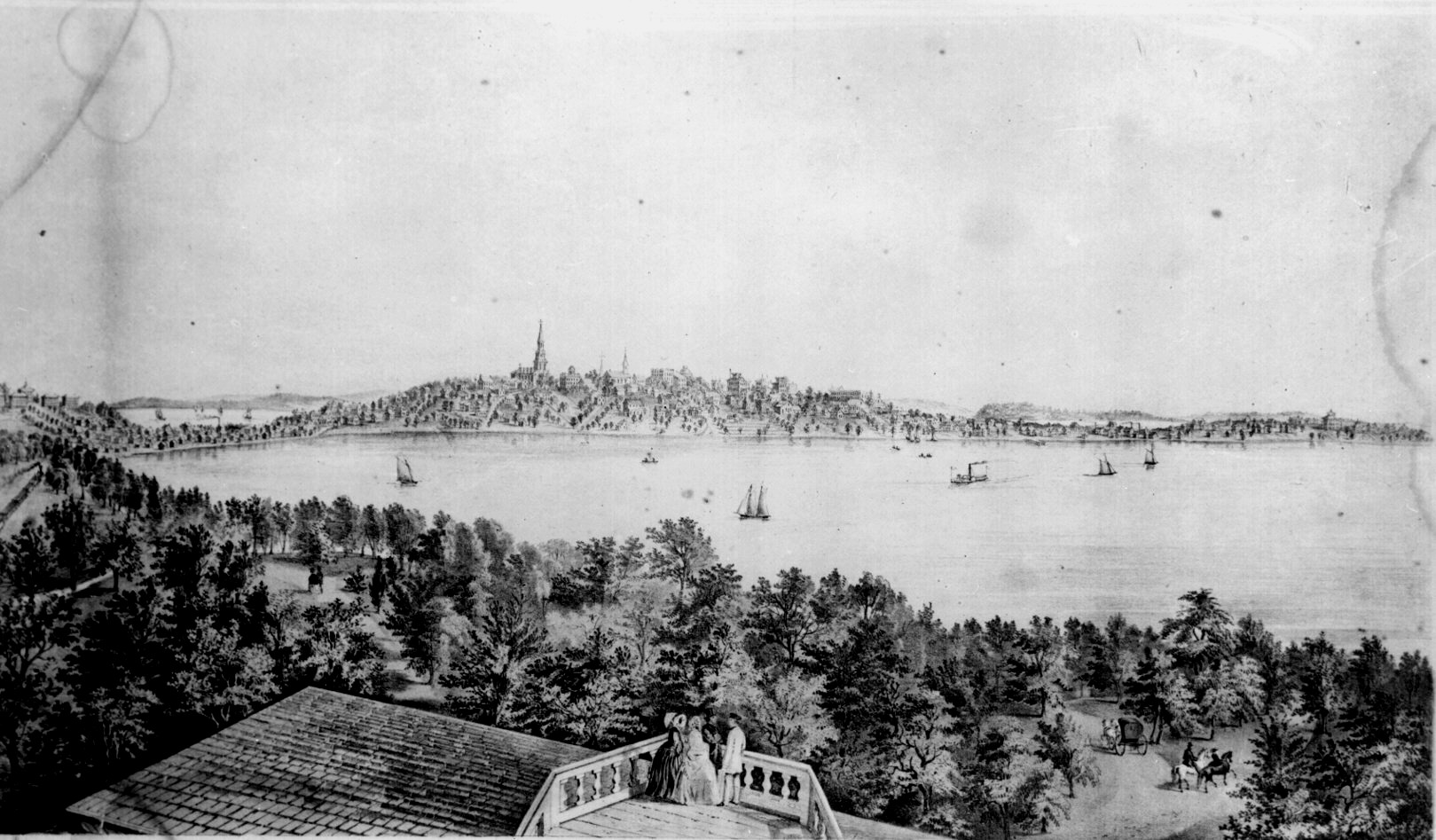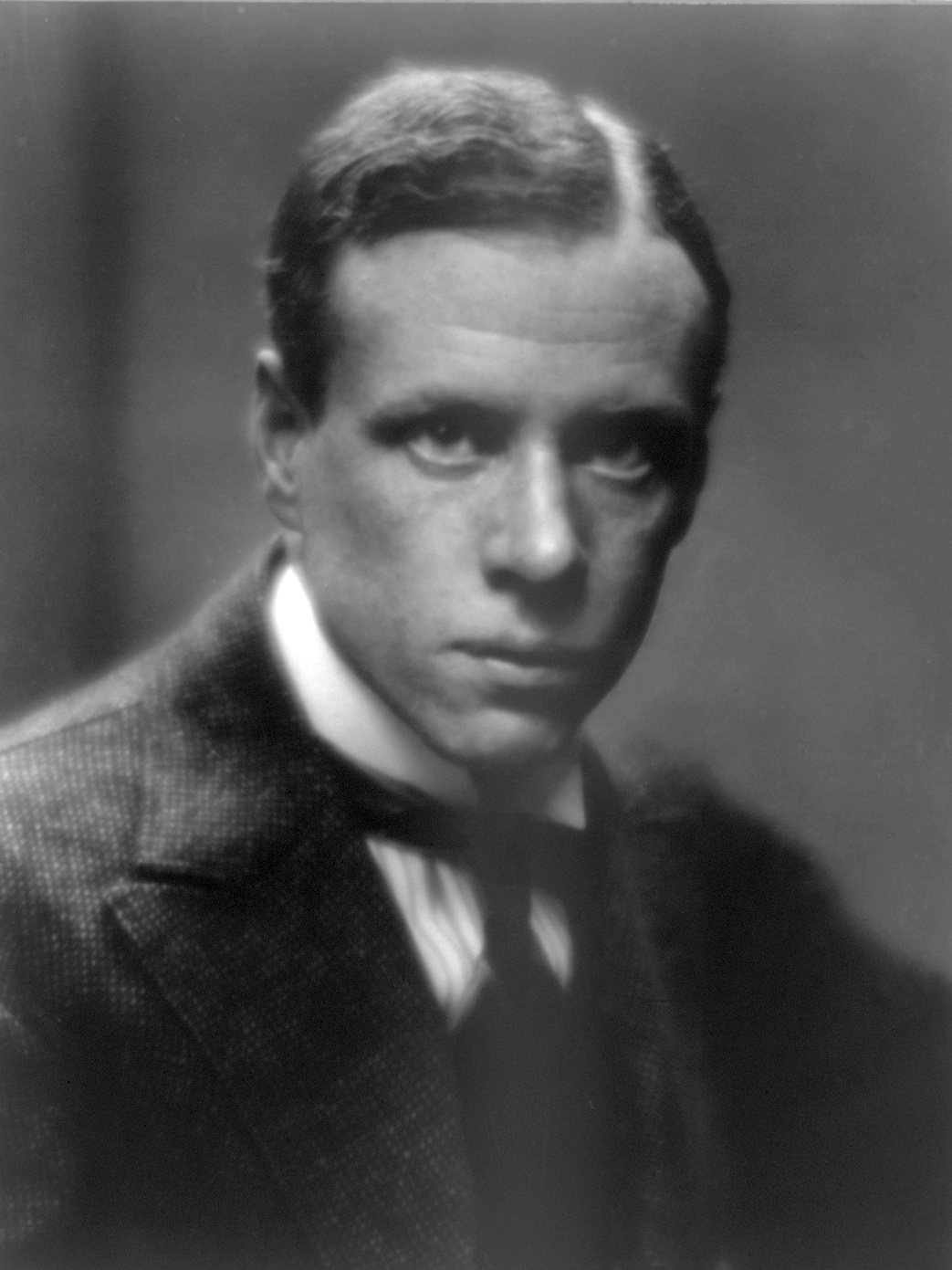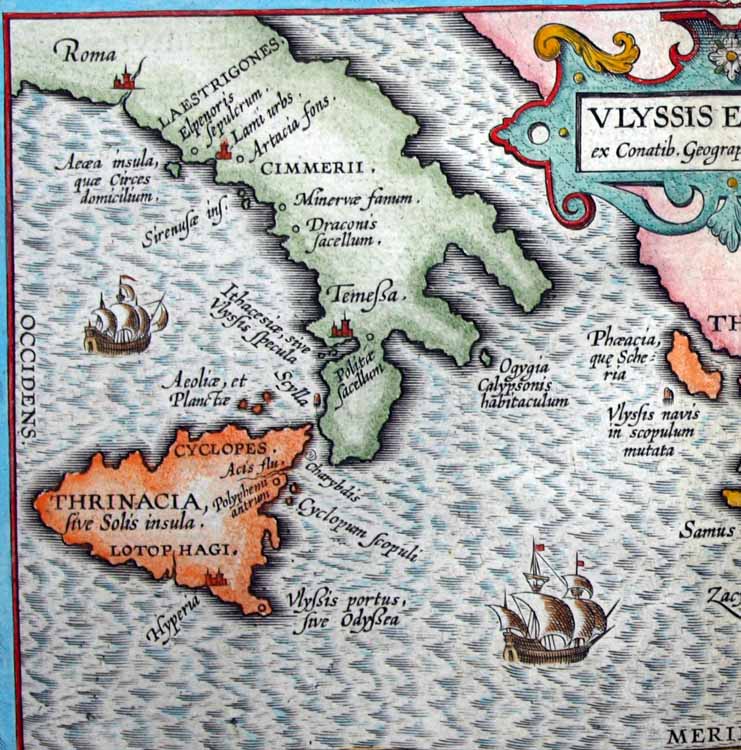|
Frederic Prokosch
Frederic Prokosch (May 17, 1906 – June 2, 1989) was an American writer, known for his novels, poetry, memoirs and criticism. He was also a distinguished translator. Biography Prokosch was born in Madison, Wisconsin, into an intellectual family that travelled widely. His father, Eduard Prokosch, an Austrian immigrant, was Professor of Germanic Languages at Yale University at the time of his death in 1938, and his sister Gertrude Prokosch Kurath was a dancer and a prominent ethnomusicologist. Prokosch was graduated from Haverford College in 1925 and received a Ph.D. in English in 1932 from Yale University. In his youth, he was an accomplished squash racquets player; he represented the Yale Club in the 1937 New York State squash racquets championship. He won the squash-racquets championship of France in 1938. During World War II, Prokosch was a cultural attaché at the American Legation in Sweden. He spent most of the remainder of his life in Europe, where he led a peripate ... [...More Info...] [...Related Items...] OR: [Wikipedia] [Google] [Baidu] |
Madison, Wisconsin
Madison is the county seat of Dane County and the capital city of the U.S. state of Wisconsin. As of the 2020 census the population was 269,840, making it the second-largest city in Wisconsin by population, after Milwaukee, and the 80th-largest in the U.S. The city forms the core of the Madison Metropolitan Area which includes Dane County and neighboring Iowa, Green, and Columbia counties for a population of 680,796. Madison is named for American Founding Father and President James Madison. The city is located on the traditional land of the Ho-Chunk, and the Madison area is known as ''Dejope'', meaning "four lakes", or ''Taychopera'', meaning "land of the four lakes", in the Ho-Chunk language. Located on an isthmus and lands surrounding four lakes—Lake Mendota, Lake Monona, Lake Kegonsa and Lake Waubesa—the city is home to the University of Wisconsin–Madison, the Wisconsin State Capitol, the Overture Center for the Arts, and the Henry Vilas Zoo. Madison is ho ... [...More Info...] [...Related Items...] OR: [Wikipedia] [Google] [Baidu] |
The New York Times
''The New York Times'' (''the Times'', ''NYT'', or the Gray Lady) is a daily newspaper based in New York City with a worldwide readership reported in 2020 to comprise a declining 840,000 paid print subscribers, and a growing 6 million paid digital subscribers. It also is a producer of popular podcasts such as '' The Daily''. Founded in 1851 by Henry Jarvis Raymond and George Jones, it was initially published by Raymond, Jones & Company. The ''Times'' has won 132 Pulitzer Prizes, the most of any newspaper, and has long been regarded as a national " newspaper of record". For print it is ranked 18th in the world by circulation and 3rd in the U.S. The paper is owned by the New York Times Company, which is publicly traded. It has been governed by the Sulzberger family since 1896, through a dual-class share structure after its shares became publicly traded. A. G. Sulzberger, the paper's publisher and the company's chairman, is the fifth generation of the family to head the pa ... [...More Info...] [...Related Items...] OR: [Wikipedia] [Google] [Baidu] |
Raymond Queneau
Raymond Queneau (; 21 February 1903 – 25 October 1976) was a French novelist, poet, critic, editor and co-founder and president of Oulipo ('' Ouvroir de littérature potentielle''), notable for his wit and cynical humour. Biography Queneau was born at 47, rue Thiers (now Avenue René-Coty), Le Havre, Seine-Inférieure, the only child of Auguste Queneau and Joséphine Mignot. After studying in Le Havre, Queneau moved to Paris in 1920 and received his first baccalauréat in 1925 for philosophy from the University of Paris. Queneau performed military service as a ''zouave'' in Algeria and Morocco during the years 1925–26. During the 1920s and 1930s Queneau took odd jobs for income such as bank teller, tutor, translator and some writing in a column entitled, "Connaissez-vous Paris?" for the daily ''Intransigeant''. He married Janine Kahn (1903–1972) in 1928 after returning to Paris from his first military service. Kahn was the sister-in-law of André Breton, leader of the su ... [...More Info...] [...Related Items...] OR: [Wikipedia] [Google] [Baidu] |
Anthony Burgess
John Anthony Burgess Wilson, (; 25 February 1917 – 22 November 1993), who published under the name Anthony Burgess, was an English writer and composer. Although Burgess was primarily a comic writer, his Utopian and dystopian fiction, dystopian satire ''A Clockwork Orange (novel), A Clockwork Orange'' remains his best-known novel. In 1971, it was adapted into a controversial A Clockwork Orange (film), film by Stanley Kubrick, which Burgess said was chiefly responsible for the popularity of the book. Burgess produced numerous other novels, including the Enderby quartet, and ''Earthly Powers''. He wrote librettos and screenplays, including the 1977 TV mini-series ''Jesus of Nazareth (miniseries), Jesus of Nazareth''. He worked as a literary critic for several publications, including ''The Observer'' and ''The Guardian'', and wrote studies of classic writers, notably James Joyce. A versatile linguist, Burgess lectured in phonetics, and translated ''Cyrano de Bergerac (play), ... [...More Info...] [...Related Items...] OR: [Wikipedia] [Google] [Baidu] |
Dylan Thomas
Dylan Marlais Thomas (27 October 1914 – 9 November 1953) was a Welsh poet and writer whose works include the poems "Do not go gentle into that good night" and "And death shall have no dominion", as well as the "play for voices" ''Under Milk Wood''. He also wrote stories and radio broadcasts such as ''A Child's Christmas in Wales'' and ''Portrait of the Artist as a Young Dog''. He became widely popular in his lifetime and remained so after his death at the age of 39 in New York City. By then, he had acquired a reputation, which he had encouraged, as a "roistering, drunken and doomed poet". Thomas was born in Swansea, Wales, in 1914. In 1931, when he was 16, Thomas, an undistinguished pupil, left school to become a reporter for the '' South Wales Daily Post''. Many of his works appeared in print while he was still a teenager. In 1934, the publication of "Light breaks where no sun shines" caught the attention of the literary world. While living in London, Thomas met Caitli ... [...More Info...] [...Related Items...] OR: [Wikipedia] [Google] [Baidu] |
Thornton Wilder
Thornton Niven Wilder (April 17, 1897 – December 7, 1975) was an American playwright and novelist. He won three Pulitzer Prizes — for the novel ''The Bridge of San Luis Rey'' and for the plays ''Our Town'' and ''The Skin of Our Teeth'' — and a U.S. National Book Award for the novel '' The Eighth Day''. Early years and family Wilder was born in Madison, Wisconsin, the son of Amos Parker Wilder, a newspaper editor and later a U.S. diplomat, and Isabella Thornton Niven. Wilder had four siblings as well as a twin who was stillborn. All of the surviving Wilder children spent part of their childhood in China when their father was stationed in Hong Kong and Shanghai as U.S. Consul General. Thornton's older brother, Amos Niven Wilder, became Hollis Professor of Divinity at the Harvard Divinity School. He was a noted poet and was instrumental in developing the field of theopoetics. Their sister Isabel Wilder was an accomplished writer. They had two more sisters, Charlotte Wilder, ... [...More Info...] [...Related Items...] OR: [Wikipedia] [Google] [Baidu] |
Sinclair Lewis
Harry Sinclair Lewis (February 7, 1885 – January 10, 1951) was an American writer and playwright. In 1930, he became the first writer from the United States (and the first from the Americas) to receive the Nobel Prize in Literature, which was awarded "for his vigorous and graphic art of description and his ability to create, with wit and humor, new types of characters." He is best known for his novels '' Main Street'' (1920), ''Babbitt'' (1922), '' Arrowsmith'' (1925), ''Elmer Gantry'' (1927), '' Dodsworth'' (1929), and ''It Can't Happen Here'' (1935). His works are known for their critical views of American capitalism and materialism in the interwar period. He is also respected for his strong characterizations of modern working women. H. L. Mencken wrote of him, " fthere was ever a novelist among us with an authentic call to the trade ... it is this red-haired tornado from the Minnesota wilds." Early life Born February 7, 1885, in the village of Sauk Centre, Minnesota, Le ... [...More Info...] [...Related Items...] OR: [Wikipedia] [Google] [Baidu] |
André Gide
André Paul Guillaume Gide (; 22 November 1869 – 19 February 1951) was a French author and winner of the Nobel Prize in Literature (in 1947). Gide's career ranged from its beginnings in the Symbolism (arts), symbolist movement, to the advent of Anti-imperialism, anticolonialism between the two World Wars. The author of more than fifty books, at the time of his death his obituary in ''The New York Times'' described him as "France's greatest contemporary man of letters" and "judged the greatest French writer of this century by the literary cognoscenti." Known for his fiction as well as his autobiographical works, Gide exposed to public view the conflict and eventual reconciliation of the two sides of his personality (characterized by a Protestant austerity and a transgressive sexual adventurousness, respectively), which a strict and moralistic education had helped set at odds. Gide's work can be seen as an investigation of freedom and empowerment in the face of moralistic and pur ... [...More Info...] [...Related Items...] OR: [Wikipedia] [Google] [Baidu] |
Thomas Mann
Paul Thomas Mann ( , ; ; 6 June 1875 – 12 August 1955) was a German novelist, short story writer, social critic, philanthropist, essayist, and the 1929 Nobel Prize in Literature laureate. His highly symbolic and ironic epic novels and novellas are noted for their insight into the psychology of the artist and the intellectual. His analysis and critique of the European and German soul used modernized versions of German and Biblical stories, as well as the ideas of Johann Wolfgang von Goethe, Friedrich Nietzsche, and Arthur Schopenhauer. Mann was a member of the Hanseatic Mann family and portrayed his family and class in his first novel, ''Buddenbrooks''. His older brother was the radical writer Heinrich Mann and three of Mann's six children – Erika Mann, Klaus Mann and Golo Mann – also became significant German writers. When Adolf Hitler came to power in 1933, Mann fled to Switzerland. When World War II broke out in 1939, he moved to the United States, then returned to Swit ... [...More Info...] [...Related Items...] OR: [Wikipedia] [Google] [Baidu] |
Poictesme
Poictesme () is a fictional country or province which forms the setting of the fantasy works of James Branch Cabell, known collectively as ''Biography of the Life of Manuel''. Poictesme is ruled by the Count Dom Manuel. It was the author's intention to situate Poictesme roughly in Southern France. The name suggests the two real French cities of Poitiers (medieval ''Poictiers'') and Angoulême (medieval ''Angoulesme''). Poictesme is a fief of King Ferdinand of Castile and León, who installs Manuel as count in the year 1234. Cabell's fictional history of the country extends as far as the 17th century. The first map of Poictesme was drawn by Cabell himself, but other maps were created by artists such as Frank C. Papé, Peter Koch, and Judith Ann Lawrence. At the height of Cabell's popularity in the 1920s, Cabell's publishers sold framed wall-maps of Poictesme. The undergraduate literary journal of Virginia Commonwealth University is named ''pwatem'' after the fictional prov ... [...More Info...] [...Related Items...] OR: [Wikipedia] [Google] [Baidu] |
Aeaea
__NOTOC__ Aeaea, Ææa or Eëä ( or ; grc, Αἰαία, Aiaíā ) was a Greek mythology, mythological island said to be the home of the goddess-sorceress Circe. In Homer's ''Odyssey'', Odysseus tells Alcinous that he stayed here for one year on his way home to Homer's Ithaca, Ithaca. He says that he could not resist the need to be on this island, not so much for Circe but so that he does not resist the pull. Before leaving Aeaea, Odysseus was given instructions by Circe about how to cross the ocean and assisted by the North Wind to reach the Greek underworld, underworld: Description Homer describes Aeaea as covered with a mixture of pasture and dense woodland of oak and beech. There were high hills or bluffs from which the sea could be seen encircling the island in all directions. Circe's stone house was located in a "dense forest of trees" "in a place that could be seen from far." Location The somewhat inconsistent geography of the Odyssey, geography of Homer's ''Odyssey ... [...More Info...] [...Related Items...] OR: [Wikipedia] [Google] [Baidu] |
Atlantis
Atlantis ( grc, Ἀτλαντὶς νῆσος, , island of Atlas (mythology), Atlas) is a fictional island mentioned in an allegory on the hubris of nations in Plato's works ''Timaeus (dialogue), Timaeus'' and ''Critias (dialogue), Critias'', wherein it represents the antagonist naval power that besieges "Ancient Athens", the Counterfactual history, pseudo-historic embodiment of Plato's ideal state in ''The Republic (Plato), The Republic''. In the story, Athens repels the Atlantean attack unlike any other nation of the Ecumene, known world, supposedly bearing witness to the superiority of Plato's concept of a state. The story concludes with Atlantis falling out of favor with the deities and submerging into the Atlantic Ocean. Despite its minor importance in Plato's work, the Atlantis story has had a considerable impact on literature. The allegorical aspect of Atlantis was taken up in utopian works of several Renaissance writers, such as Francis Bacon's ''New Atlantis'' and Th ... [...More Info...] [...Related Items...] OR: [Wikipedia] [Google] [Baidu] |

.png)






_by_night.jpg)

